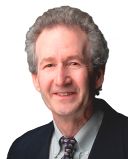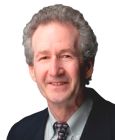Personality
Three Skills Involved in Ethical Judgments of Public Figures 2: Psychological Knowledge
What kinds of knowledge are useful to understanding public figures
Posted June 15, 2011

I explored the communication skills useful in making ethical judgments of public figures in my last post. Clear writing, guided by an editor, can help a professional who is analyzing another person to ensure that what he or she says is what is meant. Few writers attain such clarity all the time, but it is an important facet of judging others carefully and ethically.
A second group of skills necessary to the good judgment of others involves the ability to use and reason with psychological knowledge that is scientifically-grounded. Such an ability enables a professional to understand the personality of another person better than an average individual.
The American Psychological Association's ethics code on "Media Presentations " (Section 5.04) stresses being scientifically competent:
"5.04 Media Presentations
"When psychologists provide public advice or comment via print, Internet, or other electronic transmission, they take precautions to ensure that statements (1) are based on their professional knowledge, training, or experience in accord with appropriate psychological literature and practice;..."
The professional knowledge can take many forms, but the forms share in common that they draw on research intended to help better understand people.
Several examples reflect the diversity possible in applying scientific methods to understanding a person.
The first example involves an experienced clinician who assesses a public figure based on that public figure's behavioral pattern. The experienced mental health professional often can provide an intriguing explanation of the behavior of a public figure that otherwise might remain wholly mysterious.
For example, on February, 25th, 2011, Dr. Drew Pinksy commented on TMZ concerning the actor Charlie Sheen's unusual public comments as of mid-February, 2011. In a series of interviews and other public comments, Sheen had noted that he was no fan of Alcohlics Anonymous, said that what was important was winning (and that he was winning, relative to his employers at the television show Two and a Half Men), criticized Thomas Jefferson, and discussed his relationship to the Two and a Half Men writers and actors. Dr. Pinsky, in discussing Mr. Sheen, acknowledged that success rates in Alcoholics Anonymous were not high, noted that bipolar disease can underlie some drug abuse, and speculated that Mr. Sheen's comments might reflect a manic state. Dr. Pinsky also commented on the diffciult position of the family when a family member behaves so unusually. Dr. Pinsky's speculations were responsible and informative, albeit their accuracy is difficult to deterimne (as is often the case with diagnoses, however made). From such comments, the public learns how professionals view the matter, hears the language the professional uses, and hears conclusions similar to those a clinician treating the person might draw.
A second kind of expertise involves psychological testing. Experts in testing have often applied standardized measures to the behavior of public figures from a distance. When people think of standardized tests they most commonly imagine a test taker answering questions him or herself — and that is generally accurate. What is less often appreciated is that many tests have an observer-based version — a test form that someone who has observed the person in quesiton can fill out on the basis of observation. Many such observer-oriented measures exist. An observer might readily fill out such a scale of extraversion on a public figure, after seeing interviews with the person, reading a biography of the individual, or otherwise learning about the person. The expert would check off such items as, "This person enjoys the company of many others," "This person is often lively and full of energy," and "This person loves to attend parties." Some psychologists specialize in understanding this sort of observer scale and are expert in the uses of such measures. Research is clear that many people judge extraversion fairly accurately. This is not the case for every trait, however. People are far less accurate in observing mental abilities such as intelligence, inner emotional states, and deceptive comments. Observer-based scales often are used in studying the characteristics of public figures of special interest such as artists and US presidents, to understand how their personalities affect their performance (see here).
A third example of expertise in understanding public figures involves computer-based measurement of such matters as a person's Facebook page links, or simply the individual's public speech. Computer programs such as the Linguistic Inquiry and Word Count (LIWC) now allow some insight into a person's psychology by examining their verbal expressions. James Pennebaker (one of the creators of LIWC) and Thomas Lay used the LIWC software to examine New York mayor Rudolph Giuliani's personal comments over 35 press conferences spanning his mayoral term through 2001. They noticed that Mayor Guiliani's personality changed over the time period, particularly during periods of personal and public stresses, such as after the terrorist attacks on New York of September 11, 2001. By examining the mayor's language before and after that date, they documented the types of changes that had occurred.
"Linguistically at least, times of crisis were associated with his becoming more personal, more emotionally expressive, more cognitively complex, and more future oriented... These changes were...evident during the...WTC [World Trade Center] horrors of September 2001. ...[T]he WTC crisis forced him to socially connect with others in ways he had not done before. Ironically, the WTC experience was associated with his being the most positive in his emotional tone and also the most openly sad in his entire time as mayor." (Pennebaker & Lay, 2002, p. 280).
These are just a few of the many possible scientific methods psychologists may use. They also might engage in psychobiography in an attempt to characterize a person's lifelong psychological drives and pursuits (See, for example, Dan McAdams' recent psychobiography of President George W. Bush). These and other approaches are worth sharing with the public both because they are of general interest and because they can provide useful public education.
Such assessments, however, will not always be correct. Few groups of experts can ever claim to be accurate in the human sciences all the time. What they share in common is that they seek accuracy in a scientific fashion, with all the promise — and limits — that implies.
From the standpoint of ethics, the APA's code for media statements seems right on target in regard to its inclusion of "professional knowledge, training, or experience" as a basic requirement. Specification of those methods and their limits is also appropriate where possible. In scientific journals, researchers are often exemplary in stating the limits of their work. Whether journalists will always cooperate in conveying such limits (or allow them in brief reports in print or other media) is another matter not always under the control of the mental health professional.
Surely, when psychologists comment on public figures, a defining aspect of what they have to say ought to be their reliance on clinical science and the scientific method more generally.
Notes
The quote about Mayor Giuliani was from p. 280 of Pennebaker, J. W. & Lay, T. C. (2002). Language use and personality during crises: Analyses of Mayor Rudolph Giuliani's press conferences. Journal of Research in Personality, 36,. 271-282.
Dr. Drew Pinsky on CNN: http://www.youtube.com/watch?v=nsS7cUvDnag, from 1993 to 2001.
Copyright (c) 2011 by John D. Mayer




